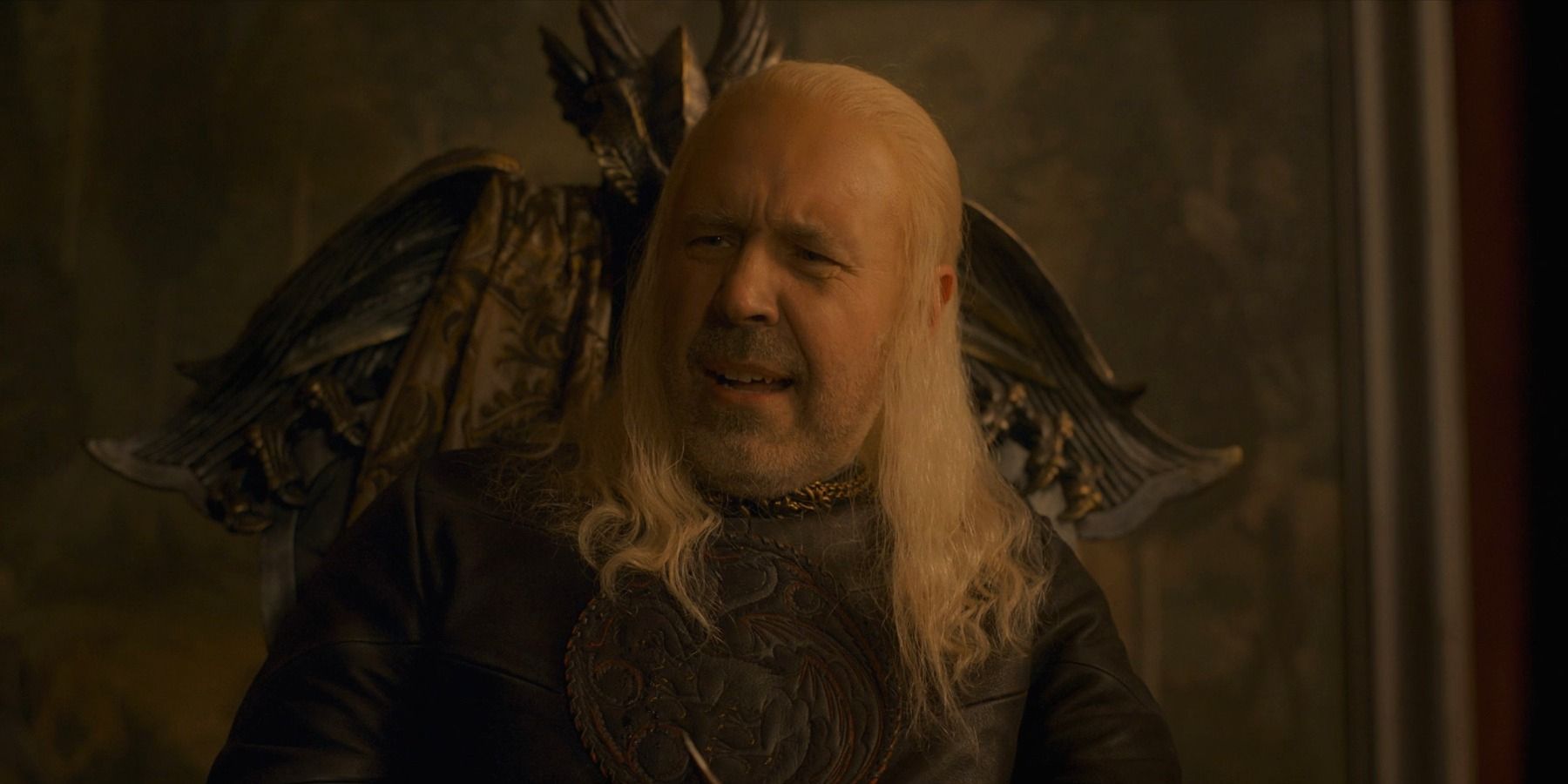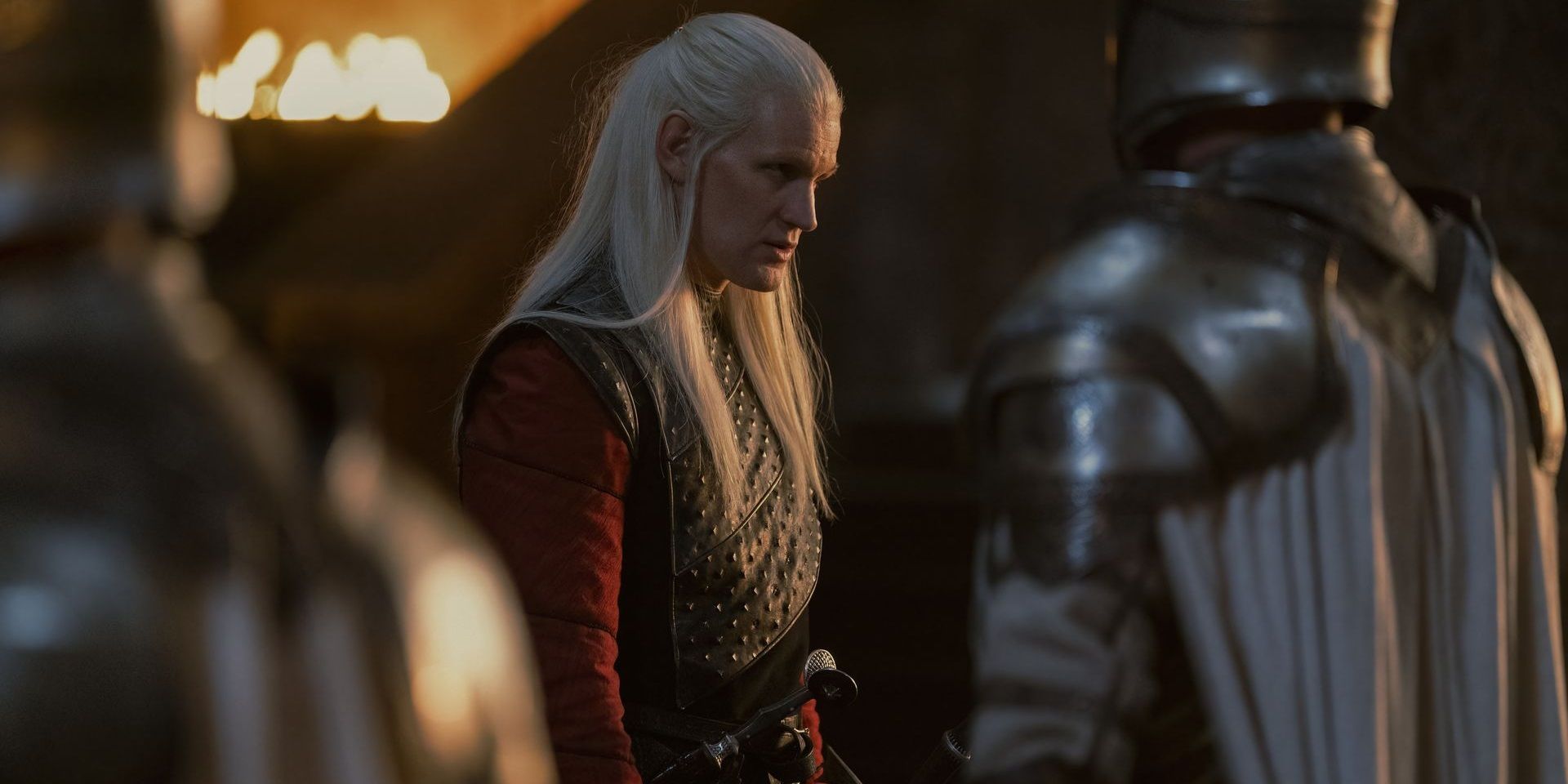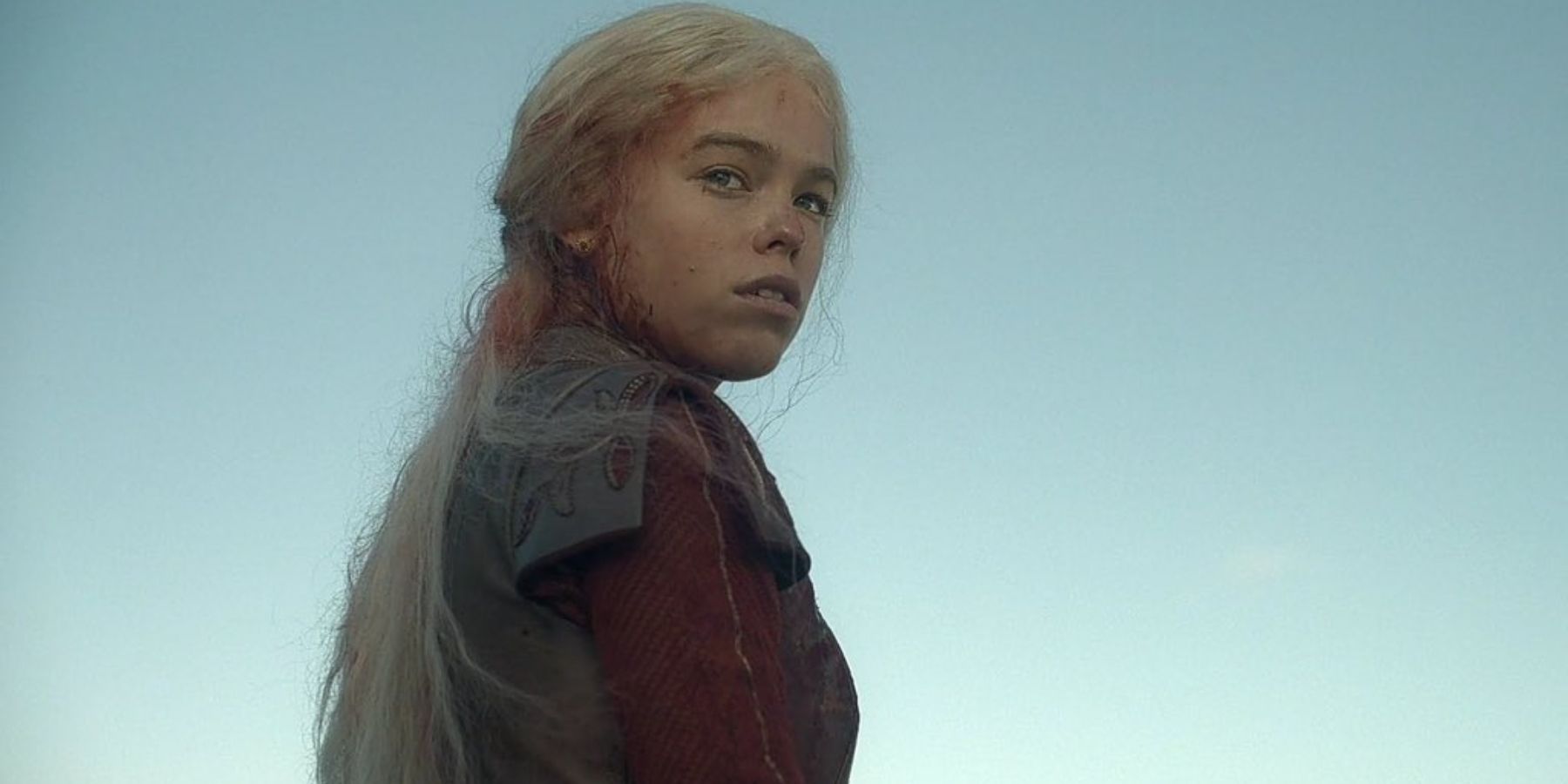House of the Dragon has been a pleasant surprise for many fans of Game of Thrones who felt burned by the heavily panned final season. The return to the Song of Ice and Fire universe has made a name for itself by being different in a number of ways, some better than others.
Game of Thrones was notoriously a very eventful series. A single episode packed in a ton of content, from action scenes to tense dialogue exchanges. Episodes almost always had to cover the days, if not the hours, that immediately followed the episode before it.
Between each episode of House of the Dragon, there's been a substantial jump in time. Six months passed between the first and second episodes. Around three years then pass between episodes two and three. A baby born in the premiere is on his feet toddling by episode three. A trade dispute mentioned in passing in the first episode is heightened in the second and concluded in the third. The narrative is moving fast, and it can be tough to tell where all the pieces are when each episode begins. There's no timecard revealing the gap between each episode, it's given subtly through context clues. The show certainly doesn't need to spoonfeed that information to the audience, but the fact that each episode takes place in a different era than the one before is a bit jarring.
Films in a franchise have some leeway when it comes to time. A piece of a long-running film franchise could take place years after the last or carry the momentum from its final moments. Time jumps between seasons of television aren't uncommon. The show goes away for a while on some big cliffhanger and the audience is prepared for a new experience when it gets back. Anime loves a good time-skip, it's a chance to age up all of its characters by a few years, and give them all new powers and outfits. Regular prestige television jumping multiple years between weekly episodes is somewhat unheard of. Elements of the series feel like they're happening in the margins, while others take up large swaths of screen time. It's interesting to imagine how Game of Thrones might have handled some of the same material in its early seasons. The big difference comes in the two shows' formats.
Game of Thrones covered events very nearly in real-time, only cutting away from one perspective to show off another. The camera leaves the wall to check in on Joffrey, then moves from there to see what Stannis is up to, and so on. Most big events in the series are occurring simultaneously, they're best depicted by a world map with all the relevant armies and characters labeled. Meanwhile, the flow of events in House of the Dragon follows a more linear structure. It isn't as concerned with multiple camps moving at the same time. Instead, it's spent its first three episodes exploring the life and times of one family, spread across years of new developments. The focus has shifted dramatically. There are fewer central characters, which means the few that there are get more focus. On the other hand, the series seems determined to cover way more information than its predecessor in less time.
House of the Dragon is already renewed for a second season. The first will have ten episodes, the second season's length is not yet known. It is very likely that the time elapsed across episodes will gradually reduce as the season goes on, but there will almost certainly be more sharp increases. The series intends to tell the tale of House Targaryen's fall from lords of the realm to the sorry state they occupy in Game of Thrones. There is a ton of ground left to cover in that narrative, some of which will likely require even larger leaps in the timeline. The baby born in the premiere will likely become a man and sire an heir. The story certainly isn't dragging, but the pace is liable to leave some viewers behind. Some fans gave the original Game of Thrones trouble for being hard to follow, but missing a few minutes of House of the Dragon could leave a fan totally lost.
House of the Dragon is unlikely to slow down, but most fans find it perfectly exciting in its current form. Jumping forward in time has the potential to leave interesting material in-between episodes. Fans of the franchise seem to have no trouble keeping up, but this breakneck pacing could leave newcomers somewhat confused. Pacing is key to any narrative, and, as some fans discovered in the series' third episode, building something up too much could lead to disappointment. Fans will have to wait and see how House of the Dragon handles years moving into decades as its seasons go on.



